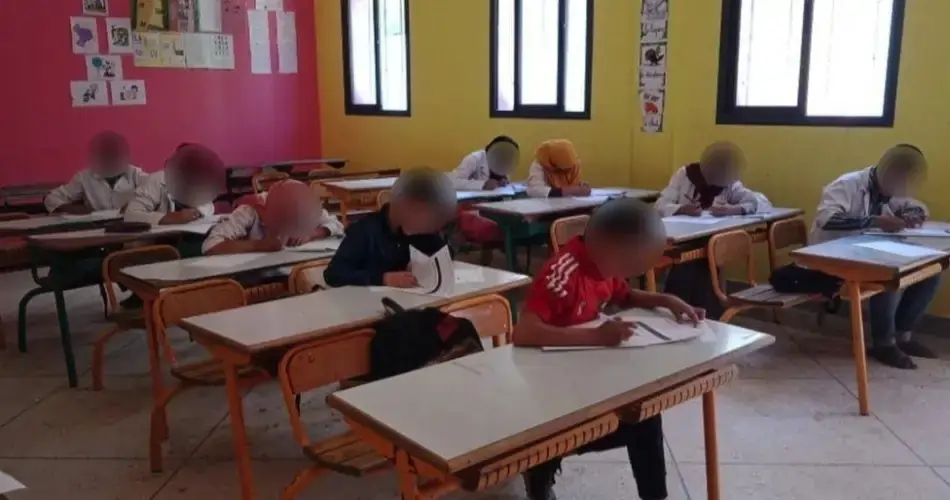“I’m still in shock”: Teacher who lost 32 students in Morocco earthquake speaks out
Nesreen Abu ElFadel was teaching Arabic and French to the group of children, ages 6 to 12, who lived in the area that was the epicenter of the worst earthquake in Morocco’s history
When she felt the 6.8 magnitude earthquake a week ago, a Moroccan teacher’s thoughts immediately turned to her students.
Nesreen Abu ElFadel was in Marrakech that night, but Adaseel – the mountain village where her school and students were located – was closer to the epicenter. So the Arabic and French teacher went back there to look for the children.

She discovered that all 32 pupils, aged 6 to 12, had died.
“I went to the village and started asking for my children: ‘Where is Somaya? Where is Youssef? Where is this girl? Where is that boy?'” she says. The answer came hours later, “They are all dead.”
“I imagined myself holding up my class attendance sheet and crossing out the name of one student after another, until I had crossed out 32 names; now they are all dead,” he tells the BBC.
The children were among nearly 3,000 people killed in the strongest earthquake ever recorded in Morocco, which struck on the afternoon of September 8.
The worst-hit areas were south of Marrakech, where many mountain villages were completely destroyed. Adaseel was one such place. Nesreen recalls how she heard about what happened to 6-year-old Khadija.
Rescuers found the girl’s body next to that of her brother Mohamed and her two sisters, Mena and Hanan. During the earthquake, they were all in their beds probably sleeping, and they all went to the same school.
“Khadija was my favorite. She was very nice, smart, active and loved to sing. She used to come to my house and I loved to study and talk with her,” says the teacher. The teacher describes her students as “angels”, children who are respectful and eager to learn.
Despite struggling with poverty and a crushing cost-of-living crisis, the children and their families felt that going to school was “the most important thing in the world.”
“Our last class was Friday afternoon, exactly five hours before the earthquake,” the teacher recalls.
“We were learning the Moroccan national anthem and planned to sing it in front of the whole school on Monday morning.”
Despite her calm voice, Nesreen is still affected by the trauma. She still can’t process what happened to her students and her school. “I don’t sleep; I’m still in shock,” she recounts.
“People consider me one of the lucky ones, but I don’t know how I can continue to live my life.”
Nesreen loved teaching Arabic and French to the children in this village by the Amazigh, who mainly speak their own language, Tamazight.
“It was very difficult for them to learn Arabic and French, but the children were very intelligent and almost fluent in both languages,” she recalls.
She now plans to continue her career in teaching and hopes that the authorities will rebuild Adaseel’s school, which collapsed during the earthquake.
A total of 530 educational institutions have been damaged to varying degrees, with some collapsing completely or suffering severe structural damage, according to official statements.
The Moroccan government has temporarily suspended classes in the most affected areas.
“Maybe one day, when they rebuild the school and classes are back in session, we can commemorate those 32 children and tell their story,” the teacher laments.
Remember that you can receive notifications from BBC News World. Download the latest version of our app and activate them so you don’t miss our best content.

